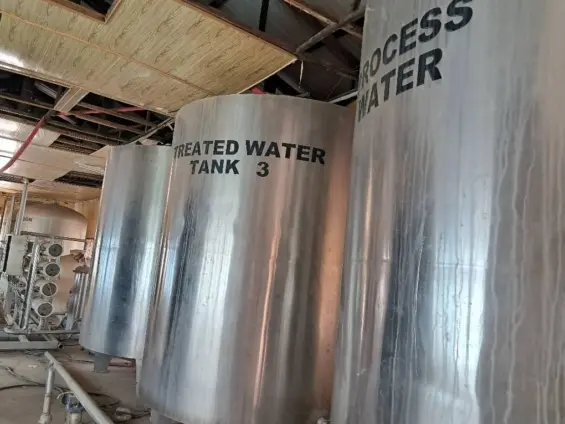In Buipe, Ghana, a renewed sense of economic optimism is taking root. The recent revitalization of the PBC Shea factory is poised to inject fresh momentum into the nation’s economy. President Mahama’s vision, brought to life through strategic initiatives, promises not only job creation but a significant boost to the country’s financial landscape, particularly through the ambitious 24-hour economy policy. The revamped PBC Shea factory, with its modern infrastructure and forward-thinking operational strategies, stands as a key pillar in this transformative plan.
This blog post delves into the multifaceted role of the PBC Shea factory in Buipe and how it is strategically positioned to contribute to Ghana’s burgeoning 24-hour economy. We will explore the factory’s operational blueprint, its infrastructure, and the job creation potential it unlocks, all while considering the challenges and transitions it has navigated over the years.
At the heart of this revitalization is President Mahama’s mandate to Abubakari Abdul Mumin, the Managing Director of the PBC Shea factory, tasking him with job creation and wealth generation. “What it means, seeing this huge investment sitting here in Buipe, is that President John Dramani Mahama’s 24-hour economy policy will be very much applicable in this factory,” Mumin stated, underscoring the direct link between the factory’s operations and the broader economic initiative.
To maximize output and ensure continuous operation, the PBC Shea factory is implementing a three-shift working system that covers morning, afternoon, and night. This strategic approach is projected to engage over 30,000 young people, including women, both directly and indirectly. As Mumin explained, “My intention as Managing Director is to implement a three-shift working system – morning, afternoon, and night – so that we can effectively engage over 30,000 young people, including women, both directly and indirectly.” This commitment to youth employment and empowerment forms the backbone of the factory’s operational ethos.
The PBC Shea factory boasts a range of functional departments designed to streamline the shea butter processing operations. Key among these is a state-of-the-art water plant capable of producing 5,700 gallons of water per day, translating to 2,562 litres per hour. Supplementing this vital resource are facilities such as a solvent extraction plant (ACP), an oil mill, a boiler, a laboratory, and a DOC (De-oiled Cake) room. Together, these components form a robust infrastructure capable of supporting continuous and efficient production.
One of the standout features of the PBC Shea factory is its ability to generate energy internally using DOC. This sustainable approach not only reduces operational costs but also underscores the factory’s commitment to environmental responsibility. Coupled with an underground fuel reserve, the factory is well-equipped to power its entire plant internally, ensuring consistent output and minimizing reliance on external energy sources.
Since 2012, the PBC Shea factory has experienced several managerial transitions, with four different directors, including Madam Gabiana Agbanwa, taking the helm. Despite these changes, the factory’s output has remained relatively stable, a testament to the resilience of its operational framework. The current focus is on ensuring future stability under the leadership of Abubakari Abdul Mumin, whose experience and technical knowledge in the industry are expected to drive the factory forward.
Mumin’s commitment to supporting government efforts in job and wealth creation is unwavering, positioning the factory as a key player in Ghana’s economic landscape. The PBC Shea factory’s potential role in actualizing the government’s 24-hour economy policy is substantial, with projections indicating the creation of approximately 30,000 direct and indirect jobs for the youth. This positions the factory as a vital hub for youth employment and government revenue generation.
Beyond job creation, the PBC Shea factory is poised to make significant contributions to the economic growth of the Savannah Region. By focusing on the local processing of shea butter and soya beans, the factory can stimulate regional development, create value-added products, and enhance the livelihoods of local communities. This localized approach not only supports the 24-hour economy but also fosters sustainable growth from the ground up.
In summary, the revitalization of the PBC Shea factory represents a pivotal moment for Ghana’s economy. As a cornerstone of the 24-hour economy initiative, the factory is set to drive job creation, stimulate economic growth, and generate revenue for the government. With its strategic location, modern infrastructure, and commitment to sustainability, the PBC Shea factory is poised to play a transformative role in shaping a brighter economic future for Ghana.
Image Source: MYJOYONLINE





















